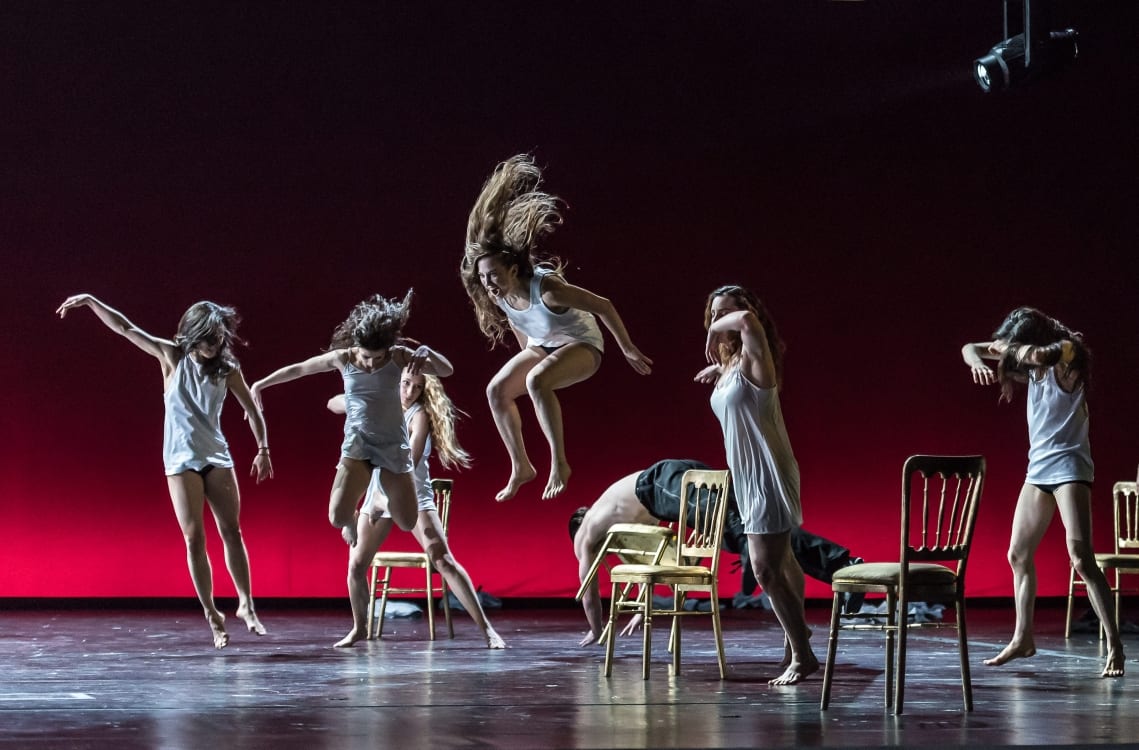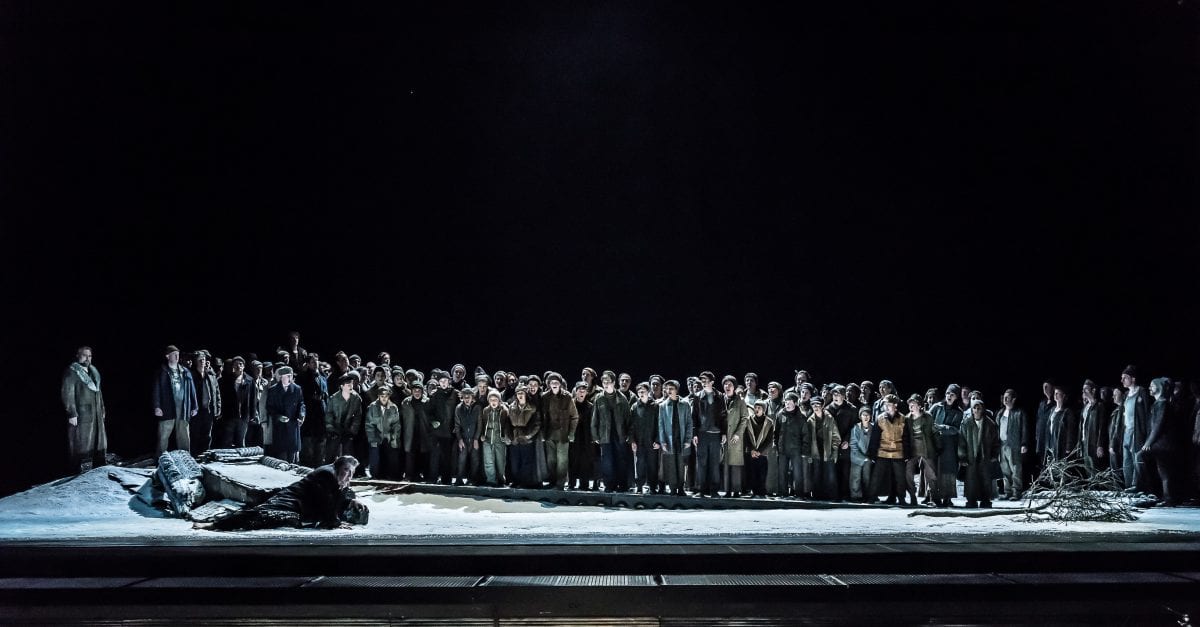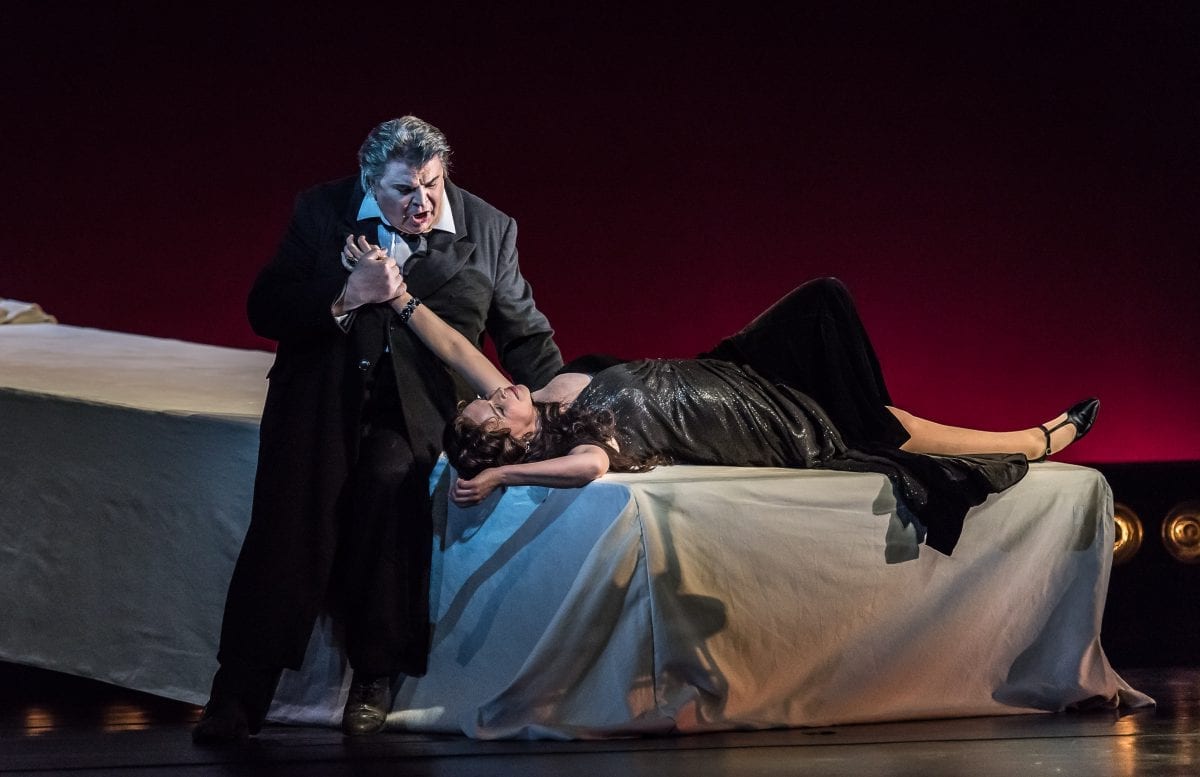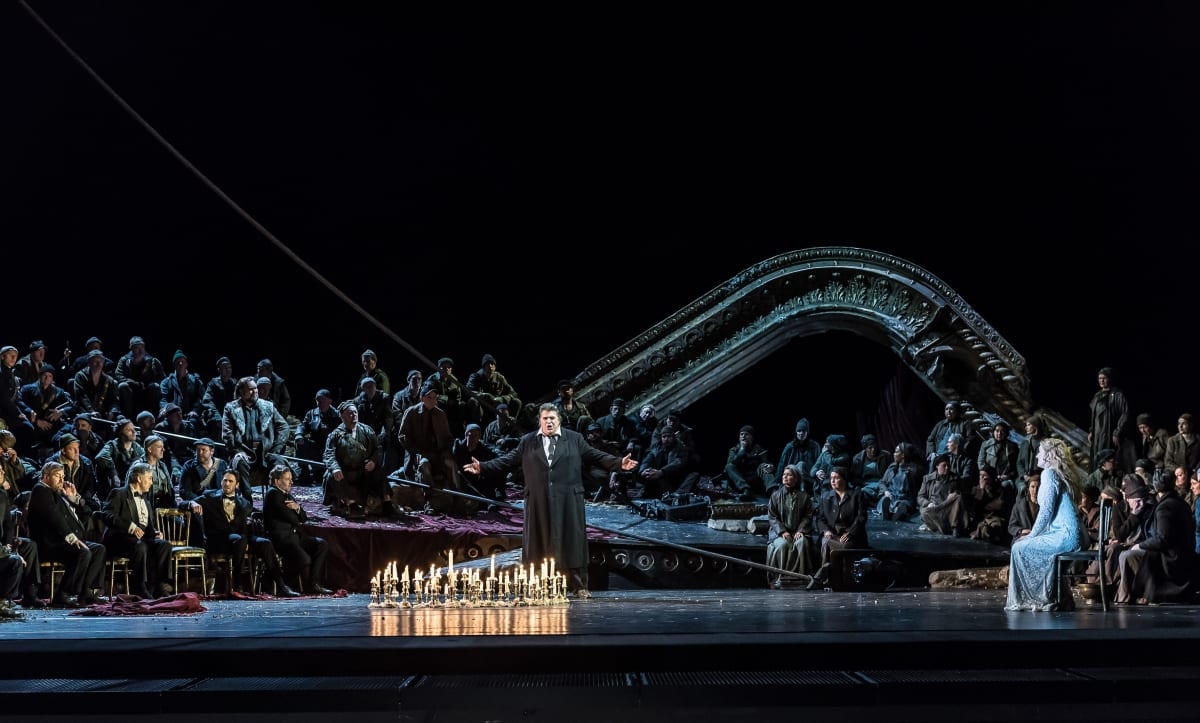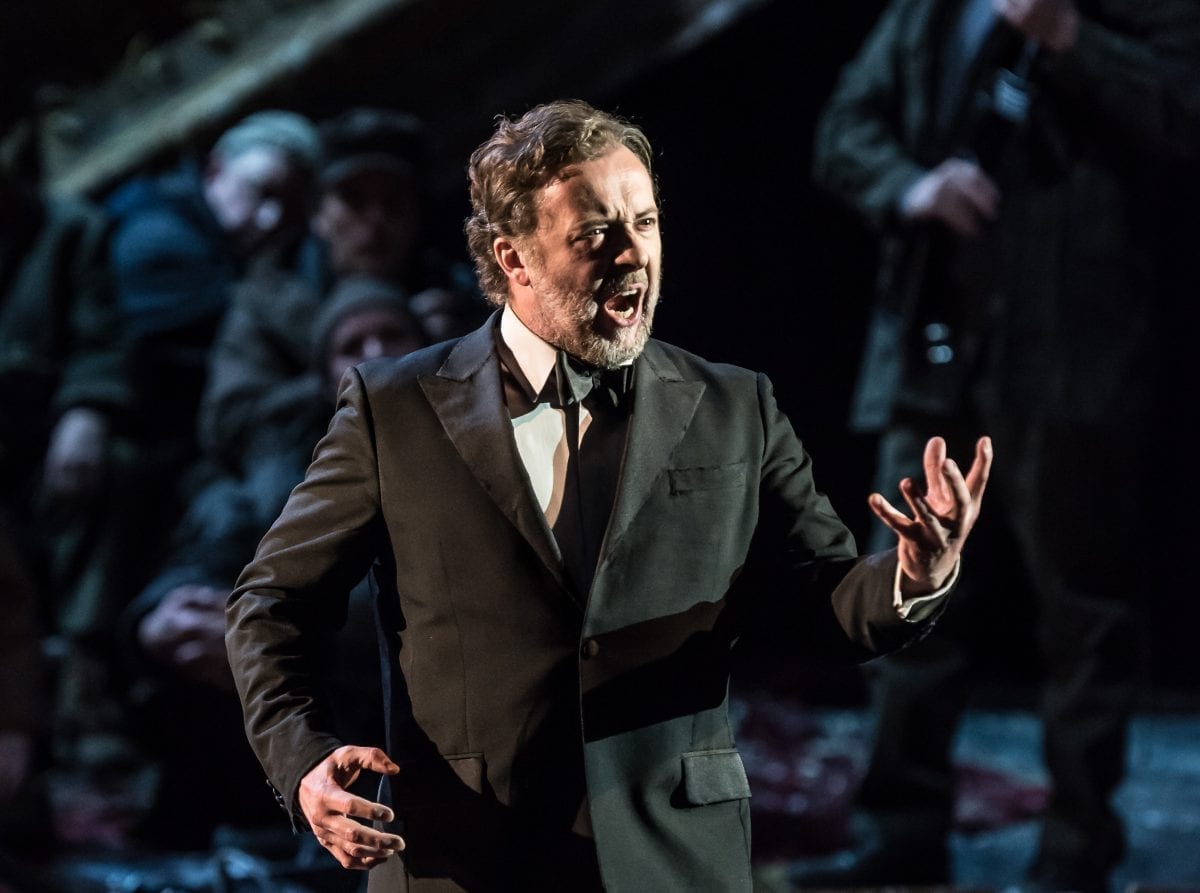Richard Wagner’s Tannäuser tells the story of a singer who feels angry and frustrated that his art is not understood and appreciated and leaves his home behind. He flees into the field of the love goddess Venus in the hope that there he can find a better life, far away from the human perception of love. After a long stay at Venusberg he longs to return to his big love Elisabeth, back with the people he upset about their thoughts of love. At this point he sings his song of the erotic love of Venus and is banished for this scandal from the Wartburg, the Castle of Landgrave Herrmann. Goalless, he wanders about looking for pity until he can die in peace and salvation.
In Tim Albery’s production the story takes place in the dreary world of the Wartburg. It resembles a battlefield. The erotic Venusberg world, in contrast, is represented by a single table that serves as a bed at the same time. A tree appears that symbolizes the only glimmer of hope for a new life in this dreary world. This idea of showing the dreary Wartburg world is actually good; it’s just the implementation that bothers me. For example, the eroticism of Venus is not coming for retribution (Act1) and that the usually so proud minstrels are presented as dirty freedom fighters with weapons (Act2). Maybe the director just wants to show us a ruined world and a desperate Tannhäuser who takes refuge in Venusberg? But the whole appearance is a matter of opinion. However Act 3 is very successful, where Elisabeth vanishes in an infinite emptiness, and Tannhäuser finally finds his salvation. Albery lets snow cover the stage, which produced a very touching effect in this sad act of the story. Bravo for this emotional finale.
Conductor Hartmut Haenchen and the Orchestra of the Royal Opera House do a great job. The Orchestra produces a wonderfully full sound. Warm sounding horns open the operaand are followed by soft sounding strings and warm cello sounds. We quickly realize that Haenchen is a master of the German style. Numerous performances of Wagner (Milan, Madrid and Copenhagen) make him a true connoisseur. The excellent orchestra performance is appreciated by the audience with thunderous applause.
Unfortunately you could not say the same of Peter Seiffert, singing the title role of Tannhäuser. Maybe the now 62-year-old singer does not have the power to sing this difficult role anymore, or maybe he was just nervous because it was the first performance and he knew that the press would be writing about him. But if you look back on his years of experience in this role, this no longer sounds believable. His voice sounded thin. He could hardly sing over the orchestra. His sharp tones sounded less relaxed than they did early in his career. During this performance his voice lost power until he sounded hoarse in the third act. Poor Peter Seiffert.
Emma Bell and Christian Gerhaher, however, give excellent performances this evening. Emma Bell impresses with wonderful timbre, beautiful lace shades and great stage presence. Wagner would have loved her performance as Elisabeth! Christian Gerhaher gave us a very soulful Wolfram. His round baritone goes smoothly over these passages. Wolfram’s “Lied an den Abendstern” was the best part of the performance. Ovations for these phenomenal singers!
Sophie Koch sings a nice Venus, but unfortunately you couldn’t hear her voice over the orchestra sometimes. Stephen Milling gave us a good Hermann with his dark bass. Raphael Janssens’ bright voice was perfect for the shepherd boy. Ed Lyon, Samuel Sakker, Michael Kraus and Jeremy White sang a very confident male quartet at the end of Act One.
Besides a few mishaps on the part of the singers, this is an excellent production. The audience ‘s lenthy applause reflect my opinion.

